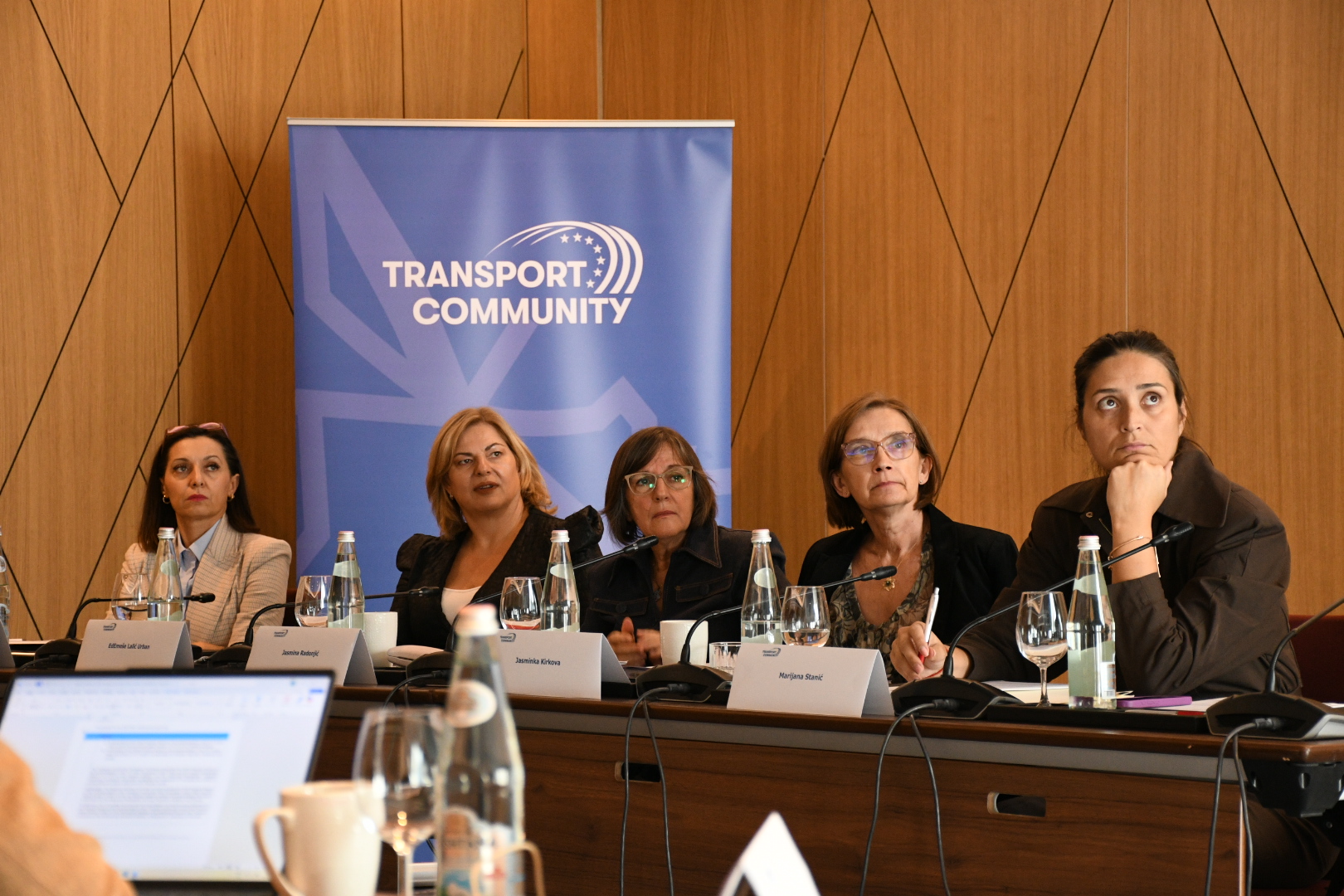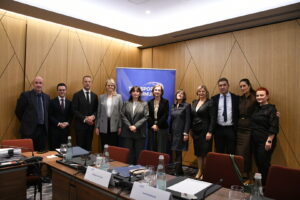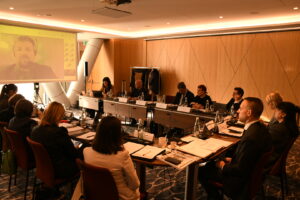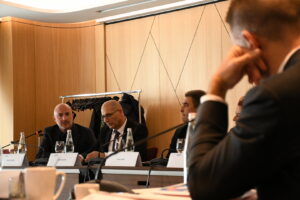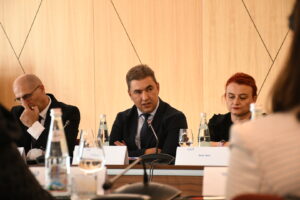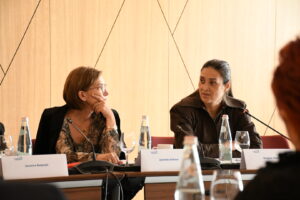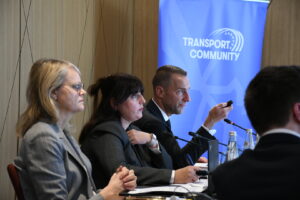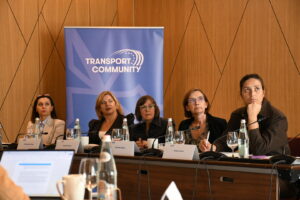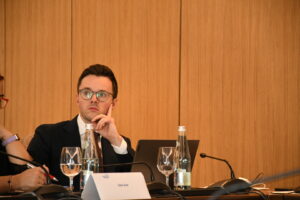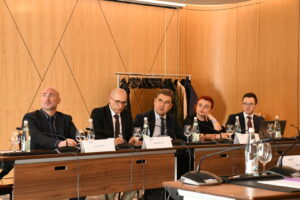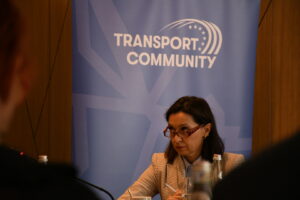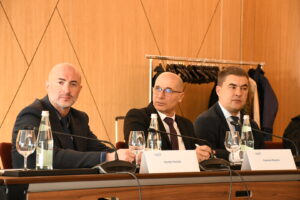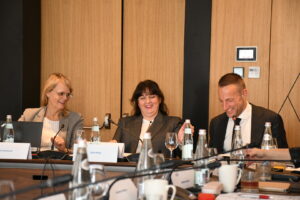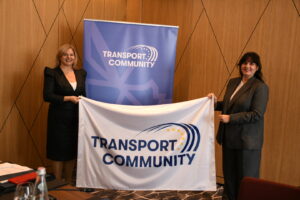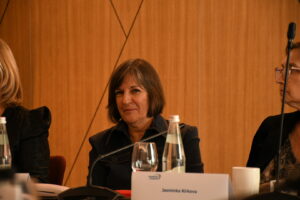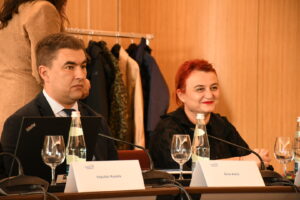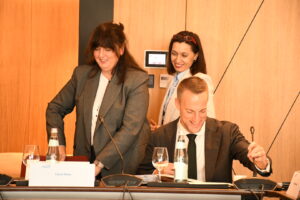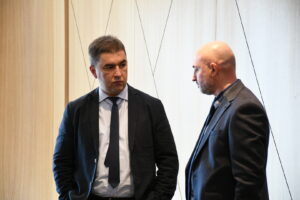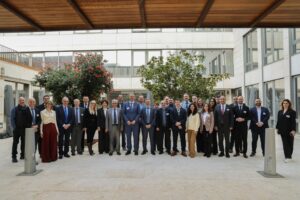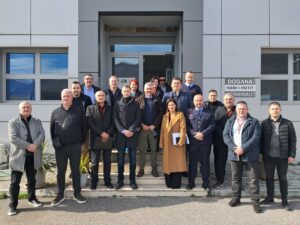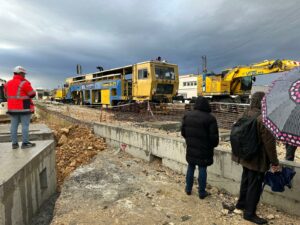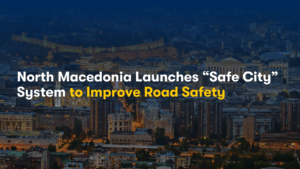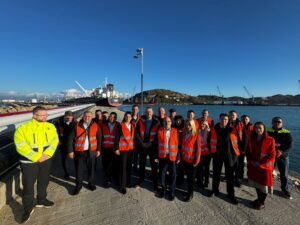TIRANA – The 28th Meeting of the Regional Steering Committee of the Transport Community took place on 28 October 2025 in Tirana, bringing together senior representatives of the ministries in charge of transport from the Western Balkans, the European Union, and the observing participants – Georgia, the Republic of Moldova, and Ukraine.
Opening the meeting, the first under the Presidency of Albania over the Transport Community’s Regional Steering Committee, Ms Erjola Muka, General Director of Transport Policies and Development of Infrastructure and Territory at the Ministry of Infrastructure and Energy of Albania, pointed out that the Regional Steering Committee is a cornerstone of our collective efforts to build a more integrated, sustainable, and resilient transport network across the Western Balkans and beyond. “Under Albania’s Presidency, we remain firmly committed to deepening cooperation within the Transport Community, aligning with EU standards, and delivering tangible progress on key connectivity reforms that bring our region closer to the European Union,” Ms Muka underlined.
Committee Co-Chair and Director for Policy Coordination in the Directorate-General for Mobility and Transport of the European Commission, Ms Mona Bjorklund, recalled the current positive momentum for enlargement and expressed hope that this will soon be fully reflected in tangible progress on acquis alignment. She encouraged the regional partners to present ambitious and forward-looking plans for the next period at the forthcoming Ministerial Council on 5 December in Brussels.
Highlighting the new momentum in the EU enlargement, Mr Matej Zakonjšek, Director of the Permanent Secretariat of the Transport Community, pointed out that the decisions taken in Tirana show that transport is more than infrastructure – it is about people, rights, and opportunities. “By strengthening regional cooperation and aligning with EU standards, we are building a more connected, competitive, and resilient region. The Secretariat will continue to support our partners every step of the way on their EU integration path,” he underlined.
The Regional Steering Committee, the operational decision-making body of the Transport Community, discussed key developments in regional transport reforms and endorsed several strategic documents to further advance integration with the EU transport market.
Among the highlights of the meeting was the endorsement of the annual report on the implementation of the Transport Community Action Plans and EU transport legislation in the Western Balkans, while also reviewing the progress of Georgia, the Republic of Moldova, and Ukraine.
The meeting also discussed a new Action Plan on Social Issues and Passenger Rights which focuses on fair working conditions in transport and improved protection for passengers across the region.
Furthermore, the Regional Steering committee discussed the concept of a Transport Investment Summit 2026, the results of a feasibility study on creating a Regional Rail Centre of Excellence for the Western Balkans, and a pilot project to better engage civil society in infrastructure and policy reform.
As part of the discussions on the revision of the Transport Community Treaty, the European Commission presented the current state of play, while the Republic of Moldova formally expressed its aspiration to become full member of the Transport Community, underlining the importance of deeper integration with the EU transport market. Seeking the support of the Western Balkans partners in this process, Moldova highlighted that full membership would strengthen regional connectivity, stability, and solidarity, while reinforcing the shared European aspirations of all partners.
In its section dedicated to governance and administration, the meeting reviewed the draft Budget 2026, audit results for 2024, and preparations for the upcoming Ministerial Council in Brussels on 5 December 2025.
The meeting underlined the Transport Community’s role as a platform for connecting the Western Balkans and Observing Participants more closely with the European Union. By aligning policies, strengthening regional cooperation, and planning major investments, the Transport Community continues to deliver on its mission of creating a safe, sustainable, and modern transport system.

